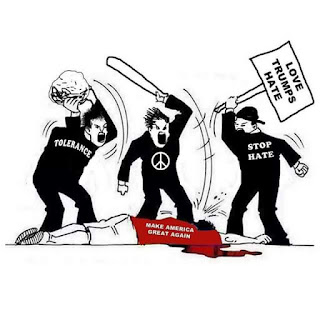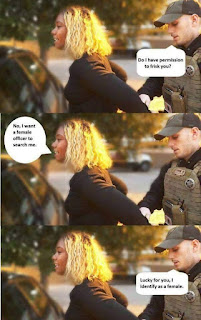The Attorney General is asking for an injunction against the Valley Meat slaughter plant in New Mexico. Today, is the...
Posted by Saving America's Mustangs on Tuesday, September 22, 2015
Albuquerque Journal
written by Deborah Baker
Sunday September 13, 2015
SANTA FE – The attorney general is asking a state district judge to expand the injunction against a horse slaughter operation in Roswell so that a successor firm – which the AG calls a “shell company” – couldn’t start one.
But the company’s lawyer says the attorney general’s request is “much ado about nothing,” since federal action has blocked horse slaughter and there are no plans for the Roswell site.
“This is just harassment,” said A. Blair Dunn, the lawyer for Valley Meat Co.
The AG sued the firm in 2013, resulting in a preliminary injunction in 2014 that prevents the plant from operating. It’s still in force, and the lawsuit is pending in state District Court.
The next hearing is scheduled for Sept. 22.
For more than a year, the AG has been trying to get information from Valley Meat about the company itself, its investors, the proposed slaughterhouse and any contracts to buy horses or sell horse meat.
The company has refused to respond to the discovery demands, saying the lawsuit is moot because Valley Meat has dropped its plans for horse slaughter at the site.
Meanwhile, according to the AG, two people who had a business relationship with Valley Meat formed D’Allende Meats, which the AG claims is a “shell company” aimed at sidestepping the injunction.
D’Allende Meats applied to the U.S. Department of Agriculture for permission to slaughter horses at the same Roswell plant and to the state Environment Department for a groundwater discharge permit.
D’Allende Meats also removed the AG’s lawsuit to federal court in December 2014, contending there were civil rights issues. A federal judge batted it back to state court in May for several reasons – including that the company didn’t have the legal authority to remove it and there was no civil rights justification.
The office of Attorney General Hector Balderas alleged in a letter filed in state District Court that D’Allende Meats “misused removal to obtain an improper five-month ‘time out’ from these proceedings” in state court.
The attorney general is also arguing that D’Allende Meats is a “front company … to carry on the very same commercial horse slaughter” that the court enjoined Valley Meats from doing.
He’s asking the court to modify the existing injunction to make clear it applies to D’Allende Meats, and to preclude the new company from pursuing applications to regulatory agencies for horse slaughter and wastewater discharge.
Dunn says in documents filed with the court that the attorney general should be made to stop his “harassment” and that the case should be dismissed.
The discovery requested by the AG is not relevant because there is no longer a controversy, Dunn argues. The lawsuit has been “rendered moot by Congress,” which currently prohibits the funding of horse slaughter inspection services.
Dunn told the Journal that D’Allende Meats, which now owns the Roswell plant, wants a groundwater discharge permit from the state so that cattle could be processed there. The facility is for sale and “nobody is going to buy a plant if there is no groundwater discharge permit,” he said.
“D’Allende has no plans to open anything in that facility at this juncture,” Dunn said.
In a separate lawsuit, filed in July in state District Court in Roswell, Dunn is suing horse protection groups – including the Humane Society of the United States, and a foundation started by former Gov. Bill Richardson and actor Robert Redford – alleging they illegally interfered with Valley Meat’s business activity.
Many of the defendants in that lawsuit were plaintiffs in a federal lawsuit against USDA in 2013, during a brief period when Congress allowed funding for horse slaughter inspections, and the USDA issued grants of inspection for Valley Meat and another company. The organizations’ lawsuit was ultimately dismissed as moot.
Valley Meat claims in the Roswell suit that the organizations misused the legal system to destroy the company’s business.
“The complaint is baseless,” Kate Ferlic, a lawyer for the Foundation to Protect New Mexico Wildlife, told the Journal.
The foundation, started by Redford and Richardson, has asked the court to dismiss the complaint, saying it is vague and not supported by facts.
*****************
The Humane Society of the United States
Animal welfare organizations support Safeguard American Food Exports (SAFE) Act
Federal lawmakers today introduced legislation to prevent the establishment of horse slaughter operations within the U.S., end the current export of American horses for slaughter abroad, and protect the public from consuming toxic horse meat. The Safeguard American Food Exports (SAFE) Act, H.R. 1942, was introduced by Reps. Frank Guinta (R-N.H.), Jan Schakowsky (D-Ill.), Vern Buchanan (R-Fla.), and Michelle Lujan Grisham (D-N.M.). The ASPCA® (The American Society for the Prevention of Cruelty to Animals®), the Animal Welfare Institute, The Humane Society of the United States and The Humane Society Legislative Fund announced their enthusiastic support for the legislation.
Last year, more than 140,000 American horses were slaughtered for human consumption in foreign countries. The animals often suffer long journeys to slaughter plants in Canada and Mexico without adequate food, water or rest. At the slaughterhouse, horses are brutally forced into a “kill box” and shot in the head with a captive bolt gun in an attempt to stun them before slaughter—a process that can be inaccurate due to the biology and nature of equines and result in animals sustaining repeated blows or remaining conscious during the kill process.
For centuries, horses have embodied the spirit of American freedom and pride,” said Rep. Guinta. “To that end, horses are not raised for food – permitting their transportation for the purposes of being slaughtered for human consumption is not consistent with our values and results in a dangerously toxic product. This bipartisan bill seeks to prevent and end the inhumane and dangerous process of transporting thousands of horses a year for food.”
Horses sent to slaughter are often subject to appalling, brutal treatment,” said Rep. Schakowsky. “We must fight those practices. The SAFE Act of 2015 will ensure that these majestic animals are treated with the respect they deserve.”
“The slaughter of horses for human consumption is an absolute travesty that must be stopped,” said Rep. Buchanan. “This bipartisan measure will finally put an end to this barbaric practice.”
"Horse slaughter is an inhumane practice that causes great pain and distress to the animals, and poses numerous environmental and food safety concerns,” said Rep. Lujan Grisham. “The vast majority of my constituents oppose horse slaughter. I'm proud to support the SAFE Act to ban this cruelty once and for all."
The SAFE Act would also protect consumers from dangerous American horse meat, which can be toxic to humans due to the unregulated administration of drugs to horses. Because horses are not raised for food, they are routinely given hundreds of toxic drugs and chemical treatments over their lifetimes that are prohibited by the U.S. Food and Drug Administration for use in animals intended for human consumption. Those drugs, although safe for horses, are potentially toxic to humans if consumed. In December 2014, the European Union announced its suspension of imports of horse meat from Mexico after a scathing audit of EU-certified Mexican horse slaughter plants, which kill tens of thousands of American horses each year. Additionally, the discovery of horse meat in beef products in Europe shocked consumers and raised concerns about the potential impact on American food industries.
The ASPCA, AWI, and The HSUS encourage the public to contact their U.S. representatives and urge them to cosponsor the SAFE Act in order to protect America’s horses and overall consumer health from horse slaughter.
CLICK HERE to track bill: H.R. 1942: Safeguard American Food Exports Act of 2015
Introduced: Apr 22, 2015
Status: Referred to Committee on Apr 22, 2015 <== sitting in committee collecting dust.
This bill was assigned to a congressional committee on April 22, 2015, which will consider it before possibly sending it on to the House or Senate as a whole.





































No comments:
Post a Comment